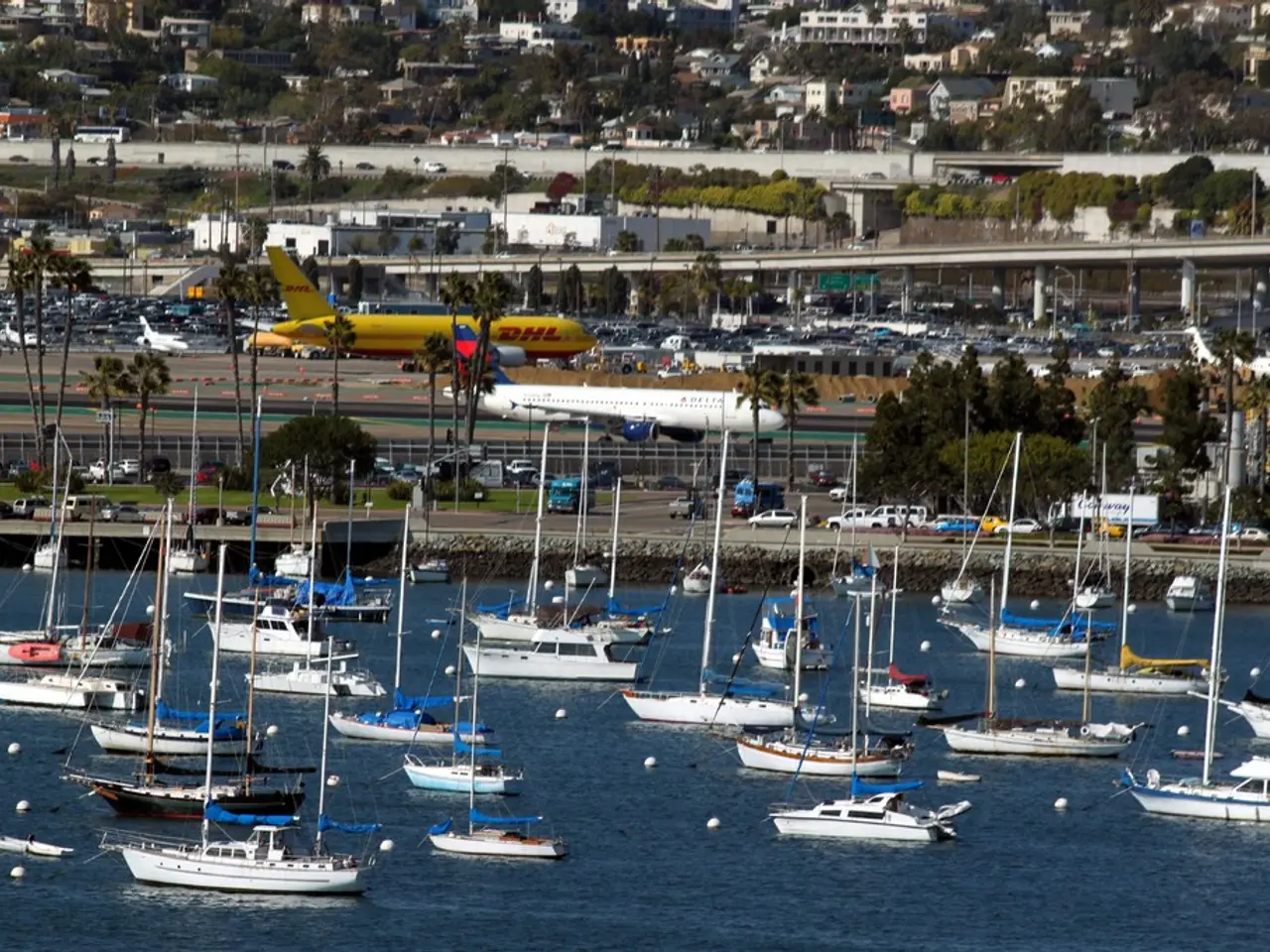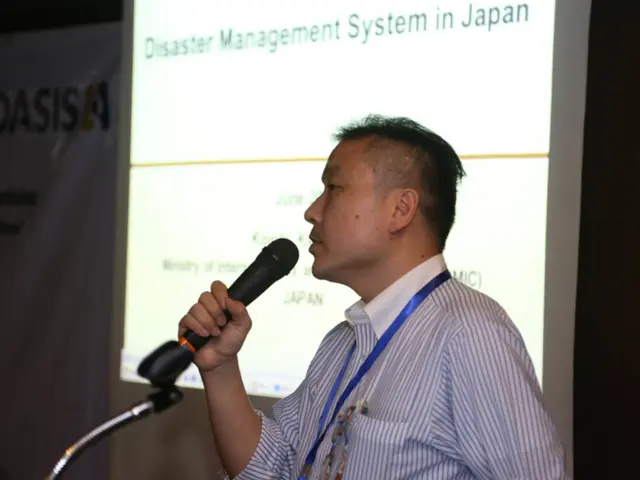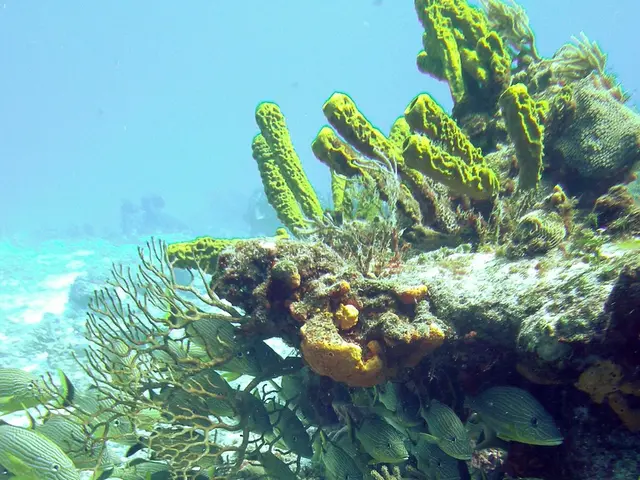UK Maritime Investment Opportunities
The maritime industry is at a critical juncture, grappling with challenges such as decarbonisation and adapting to new technologies like artificial intelligence and autonomous shipping. In an effort to address these issues, an event is being hosted in the UK to discuss strategies for supporting the industry into the future.
The seminar, organised by the Department for Transport, Maritime London, and the event's website, commences at 16:00 and concludes at 18:20. It aims to discuss how the UK can lead in maritime innovation and sustainability, featuring keynote speeches and panel discussions with leading figures within the maritime community.
The key challenges in decarbonizing the UK's maritime industry centre around financing, developing and scaling new clean technologies, and addressing operational and regulatory barriers. Solutions involve targeted UK government funding, adoption of innovative green fuels, and emerging technologies such as carbon capture, AI, and autonomous shipping.
Large capital investment is required, especially for infrastructure and retrofitting of vessels and ports. Traditional financing sources may not be sufficient to cover the investment needed for decarbonisation, requiring consideration of alternative sources of finance. The UK government has allocated £30 million specifically to decarbonize shipping and boost jobs/skills through the Clean Maritime Demonstration Competition.
Commercially viable green marine fuels (ammonia, hydrogen, methanol) and technologies like carbon capture require development and deployment at scale. Projects like “PortZero” receive government support to deploy integrated carbon and pollutant capture systems at ports, such as Southampton, reducing emissions without costly retrofits or large infrastructure changes, offering immediate benefits to port air quality and operations.
Ports and vessels face compatibility and retrofit issues, and full shore power infrastructure is slow to install. Supporting innovation and scale-up, funding is provided for manufacturing scale-up for technologies such as wind-assisted propulsion.
New fuel types and technologies necessitate updated training and safety protocols for seafarers and port workers. Organizations like The Decarb Hub and Maritime Just Transition Task Force emphasize the importance of evolving skills, safety, and regulations to ensure workers can operate new zero-emission fuels safely and effectively.
Ensuring air quality improvement at ports while moving toward net-zero requires practical emission control solutions. The goal for the maritime industry is to achieve net zero emissions by 2050, with an estimated cost of decarbonising the maritime industry ranging between $1.5 and $1.9 trillion.
After the seminar, a networking reception follows. Spaces for the event are limited, so early registration is advised to avoid disappointment. The event's full agenda can be viewed on the provided website. For any questions about the event, Erika Gardiner can be contacted. The seminar is part of the UK's commitment to leading the way in maritime innovation and sustainability, positioning the country to address these challenges and pave the path for a greener future.
[1] Clean Maritime Demonstration Competition: https://www.gov.uk/government/publications/clean-maritime-dem demonstration-competition [2] PortZero: https://www.gov.uk/government/news/11-million-to-help-uk-ports-cut-carbon-emissions [3] Southampton Port: https://www.gov.uk/government/news/southampton-port-to-launch-new-carbon-capture-project [4] Maritime Just Transition Task Force: https://www.maritimetransition.co.uk/ [5] The Decarb Hub: https://www.thedecarbhub.org/
In light of the UK's commitment to maritime innovation and sustainability, the seminar aims to discuss the role of finance in supporting the implementation of new clean technologies, such as carbon capture and autonomous shipping, to decarbonize the maritime industry. With the goal to achieve net zero emissions by 2050, the event will also address the importance of lifestyle changes, technology advancements, and sports-related initiatives that can promote a greener future. The UK government's Clean Maritime Demonstration Competition, projects like PortZero, and various organizations such as The Decarb Hub and Maritime Just Transition Task Force are all crucial resources in this endeavor.




